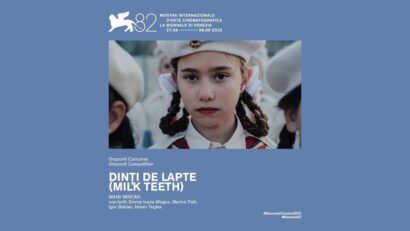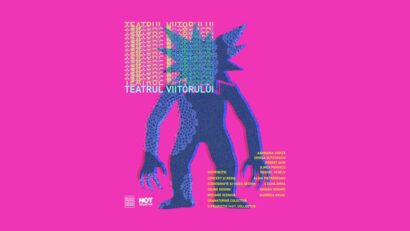Mircea Cartarescu’s Solenoid wins best novel of the year award
In a vote organised by an online literary website, Mircea Cartarescus Solenoid won the 2015 best novel of the year award with a majority of 7,000 votes.

Corina Sabău, 09.04.2016, 12:34
The novel, which was published by Humanitas in 2015 and launched at the Gaudeamus Book Fair last November, has quickly become a cult book, enjoying an equally enthusiastic response from both the public and critics. “Solenoid is unique even among Mircea Cartarescu’s works”, wrote the literary critic Ioana Parvulescu in her review of the book. She adds: “It is a portrait of the artist as an adult man, when he questions everything, even art and writing, and when he struggles to solve the great riddle of the world. The beauty of his attempt is that he does so after having demonstrated to himself that this is an impossible task. In the novel, Morpheus, the god of dreams, appears to get some help from his father Hypnos, thus creating a truly special hypnotic, morphine-like effect in the reader as if the walls of our limiting world have cracked and a door to another world has opened.”
Critic Ioana Parvulescu has more: “In my opinion, the most suitable key to understand this book, which may be seen as a poetic and aesthetic manifesto more than Cartarescu’s other works, is the oneiric element, the dreams. For the author of the diary, who is Mircea Cartarescu himself, as well as for all his fictional selves, dreams are the key opening the door to what lies beyond. This oneiric vein is extremely beautiful and appears to be inexhaustible. Sometimes it is terrible and frightening, while at other times it transports you to a world of fairytales or to a different historical era, such as for example to the time of the cave men. Some of the imagery found in Solenoid is truly stunning, and has to do with this oneiric element, which is the only way you can understand what lies ‘beyond’ or indeed, something of this world. Apart from its dream-like quality, Mircea Cartarescu’s book also contains the idea, which is implied here more than in any other of his books, that you can only look for answers within yourself. This book resembles a vast philosophical poem on a par with the great philosophical poems of the world, while at the same time providing a surprising novelty for Mircea Cartarescu, namely the book’s strong narrative structure.”
Mircea Cartarescu is one of most acclaimed contemporary Romanian writers. His works have been translated into more than 14 languages, including English. This is how he describes his latest novel, Solenoid: “In this book, I focus on the reader more than in other of my previous books, the reader is central. The reader was always present in my mind as I wrote this book. As Ioana Parvulescu mentioned, this is a structured book, not one of loose memories, of vague hallucinations, although it does have its share of such things, too. It is, of course, an oneiric book, because for me there is no difference between dream and reality, between dream and hallucination, between dream and madness, between dream and poetry, between reality and poetry. In fact, we all live within this blessed reality both during the day and during the night. This is why I would say that reality is one of the key themes of this book. What it is, what this concept covers, what this word means. Usually, when we talk about reality, we imagine we deal with a very simple concept, but in fact it is one of the most complex structures built by our mind. Reality is in our mind.”
Mircea Cartarescu’s novels were awarded by the Romanian Academy, the Romanian and the Moldovan Writers Association, the Bucharest Writers Association and the Romanian Editors Association. His novel Nostalgia won the 2005 Giuseppe Acerbi book award in Italy. Cartarescu also received the Vilenica International Literature Award in 2011, the Haus der Kulturen der Welt International Literature Award in Berlin in 2012, the Spycher — Literaturpreis Leuk Award in Switzerland in 2013, the Grand Prize of the Novi Sad International Poetry Festival in 2013, the Tormenta en un vaso award in Spain in Spain in 2014, the Euskadi de Plata, San Sebastian in 2014, the Leipzig Book Award for European Understanding in 2015, the Austrian State Prize for European Literature in 2015.






























